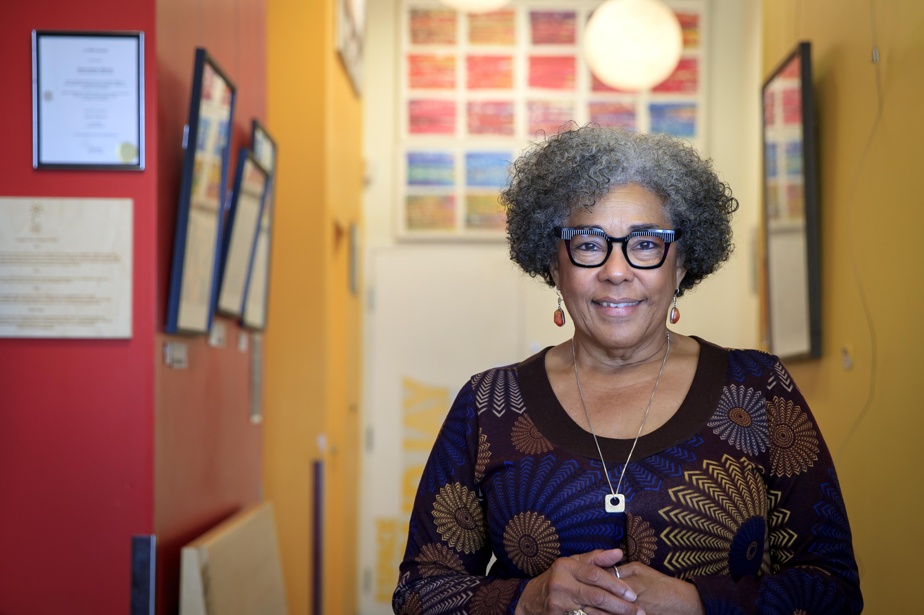“Instrumental music saved my life,” says Tati au Miel, who is an audiovisual artist. As a DJ, Tati au Miel has performed more than 300 times in various cities around the world. In the middle of touring, they are currently in New York. Last week, Tati was performing in Texas, where he was presenting a brand new EP called The fantastic world of Tati au Miel Vol. I: In my skin.
If the musician knows how to make people dance with his sounds Noize, Ambient and industrial, his cinematic work, which draws on his experience, invites more introspection. It is precisely the experimental genre, which has become his specialty, that has had a saving effect for the artist, who has just turned 25. “I am someone who is non-binary and fluid, and the way I see life is radical. Instrumental music is liberating, you can create what you want.” Even so much as giving a reason to live, thanks to the support of a local and international community that makes room for everyone. “It's for everyone,” says Tati of her music.
It should be standardized, to listen to different sounds; it can be daunting to want to know more.”
In Montreal and elsewhere
The artist turned to music at the age of 18, initiated by his roommates, who are amateur DJs. “It was also a reaction to survive, to find a way to make money. I've always been interested in music, but I had no background,” says Tati, who found a way to express herself. Becoming a DJ can be an accessible way to get started in music, according to the artist.
“Everyone sees music differently, and that's the beauty of it. Anyone can make music. It is a part of all of our lives,” they rejoice.
Montreal has a great electronic scene. There are events almost every day, and numerous platforms exist to promote her art. “Looking from a distance, it's really a blank slate,” observes Tati. But by creating what you want to see, you attract people who look like you. “The more you produce, the more you attract the community of people you want to be with.”

Travelling to the United States, Europe, and Mexico, Tati realized that, everywhere, there were people who shared her ideas and experiences. To find and build your community, the musician suggests focusing on your own vision, on what you want to contribute, as well as on how you want to participate, and to put all your efforts in that direction.
But while Montreal is known for its electronic scene, recognition first came from elsewhere. However, it is her hometown that is at the origin of the artist that Tati is today. “My sound is so specific and refined thanks to Montreal, explains the musician. However, it was when I started playing on the international scene that I was recognized and that I was able to play in Montreal.”
Taking root
By getting into music, Tati saw role models: “It's thanks to black artists who make electronic and experimental music that I wanted to do it, and discover more.” Their soundtracks call her viscerally. “When I listen to their sound, it resonates more with my values, I couldn't explain it,” they say. Often imitated, but never equalled: when it comes to the people from the cultures that created it, the essence is there. “My favorite DJs are trans,” adds Tati.
La House And the Techno are at the origin of black music. They were initially intended for these communities, as well as for LGBTQ+ people. So, Tati and other artists are also working to preserve this art and history. “Considering that most musical genres come from Indigenous and Black communities, it's not surprising that trans, non-binary people, and women are the ones who carry the torch for this music. Tati au Miel is also behind Trademark, a collective dedicated to electronic music.
The artist also suggests that aspiring musicians archive their work, for example by putting it on YouTube: “It's so important that we black people archive our stuff, that's how we create history, that's how we transmit it to our children — by being pioneers in our communities.”
As a black and queer artist, Tati has followed a path that has not been without pitfalls. “We make ourselves”Tokenize”, we know when it happens. You are the only person who looks like you in the Line-up ” describes the musician. And the support didn't always come from those closest to them, but now they're well surrounded. “It's really sad, but sadness, over time, turns into resilience. We're breaking hate and transphobic cycles.”
Designing the future
The pandemic has severely affected artists, and Tati au Miel was not spared. “COVID made me realize that I need to find a stable way to survive and live,” says the artist, who lives from his passion. Tati is also a clothing designer, and you can get his creations on its website. In addition to his personal artistic projects, which keep him busy, the musician wants to devote himself more to film music. “We forget that music producers do this kind of work,” recalls Tati. The latter are largely responsible for how you feel in front of the screen. “In a movie, when there is a scene that is very emotional, there is sound — or silence. The person who makes this choice, who creates the emotion, is the music producer.
You create these moments,” explains Tati. And, everywhere, we hear this music, which gives rhythm to our lives. “It's nice that some people pay attention to the sound and are able to produce things that make people happy, that make them dance, cry, and experience emotions,” says Tati. And it is this healing power that the artist represents, as well as that of an artistic community that extends well beyond borders. This is how Tati encourages those who share her experience to chart their own path. “Despite the obstacles, we must not lose sight of the base, which is our reasons for doing what we do.”





.png)


.jpg)

